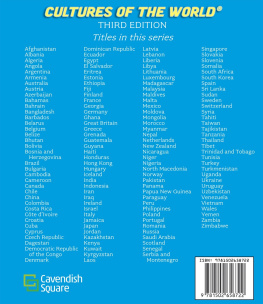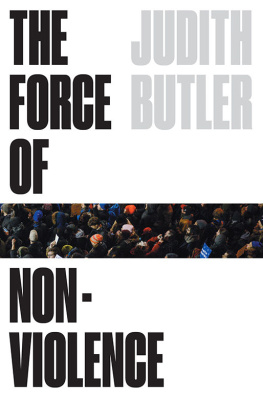Judith Beyer - The force of custom law and the ordering of everyday life in Kyrgyzstan
Here you can read online Judith Beyer - The force of custom law and the ordering of everyday life in Kyrgyzstan full text of the book (entire story) in english for free. Download pdf and epub, get meaning, cover and reviews about this ebook. year: 2016, publisher: University of Pittsburgh Press, genre: Politics. Description of the work, (preface) as well as reviews are available. Best literature library LitArk.com created for fans of good reading and offers a wide selection of genres:
Romance novel
Science fiction
Adventure
Detective
Science
History
Home and family
Prose
Art
Politics
Computer
Non-fiction
Religion
Business
Children
Humor
Choose a favorite category and find really read worthwhile books. Enjoy immersion in the world of imagination, feel the emotions of the characters or learn something new for yourself, make an fascinating discovery.

- Book:The force of custom law and the ordering of everyday life in Kyrgyzstan
- Author:
- Publisher:University of Pittsburgh Press
- Genre:
- Year:2016
- Rating:5 / 5
- Favourites:Add to favourites
- Your mark:
- 100
- 1
- 2
- 3
- 4
- 5
The force of custom law and the ordering of everyday life in Kyrgyzstan: summary, description and annotation
We offer to read an annotation, description, summary or preface (depends on what the author of the book "The force of custom law and the ordering of everyday life in Kyrgyzstan" wrote himself). If you haven't found the necessary information about the book — write in the comments, we will try to find it.
Judith Beyer: author's other books
Who wrote The force of custom law and the ordering of everyday life in Kyrgyzstan? Find out the surname, the name of the author of the book and a list of all author's works by series.
The force of custom law and the ordering of everyday life in Kyrgyzstan — read online for free the complete book (whole text) full work
Below is the text of the book, divided by pages. System saving the place of the last page read, allows you to conveniently read the book "The force of custom law and the ordering of everyday life in Kyrgyzstan" online for free, without having to search again every time where you left off. Put a bookmark, and you can go to the page where you finished reading at any time.
Font size:
Interval:
Bookmark:

Douglas Northrop, Editor
Parts of appeared in Settling Descent: Place-Making and Genealogy in Talas, Kyrgyzstan, Central Asian Survey 30, no. 34 (2011): 45568.
Parts of appeared in There Is This Law: Performing the State in the Kyrgyz Courts of Elders, in Ethnographies of the State in Central Asia, eds. Madeleine Reeves, Johan Rasanayagam, and Judith Beyer, 99123 (Bloomington: Indiana University Press, 2014), and in Customizations of Law: Courts of Elders (Aksakal Courts) in Rural and Urban Kyrgyzstan, PoLAR 38, no. 1 (2015): 5371.
Parts of appeared in Ordering Ideals: Accomplishing Well-Being in a Kyrgyz Cooperative of Elders, Central Asian Survey 32, no. 4 (2013): 43247.
Parts of appeared in Beyer and Girke, Practicing Harmony Ideology: Ethnographic Reflections on Community and Coercion, Common Knowledge 21, no. 2 (2015): 196235.
Copyright 2016, University of Pittsburgh Press
All rights reserved
Manufactured in the United States of America
Printed on acid-free paper
10 9 8 7 6 5 4 3 2 1
Title: The Force of Custom: Law and the Ordering of Everyday Life in Kyrgyzstan / Judith Beyer.
Description: Pittsburgh: University of Pittsburgh Press, 2016. | Series: Central Eurasia in context | Includes bibliographical references and index.
Identifiers: LCCN 2016039764 | ISBN 9780822964209 (paperback)
Subjects: LCSH: KyrgyzstanSocial life and customs. | KyrgyzEthnic identityHistory. | EthnologyKyrgyzstan. | National characteristics, Kyrgyz. | BISAC: SOCIAL SCIENCE / Anthropology / Cultural.
Classification: LCC DK917 .B49 2016 | DDC 390.095843dc23
LC record available at https://lccn.loc.gov/2016039764
Cover design by Alex Wolfe
with love
Font size:
Interval:
Bookmark:
Similar books «The force of custom law and the ordering of everyday life in Kyrgyzstan»
Look at similar books to The force of custom law and the ordering of everyday life in Kyrgyzstan. We have selected literature similar in name and meaning in the hope of providing readers with more options to find new, interesting, not yet read works.
Discussion, reviews of the book The force of custom law and the ordering of everyday life in Kyrgyzstan and just readers' own opinions. Leave your comments, write what you think about the work, its meaning or the main characters. Specify what exactly you liked and what you didn't like, and why you think so.








